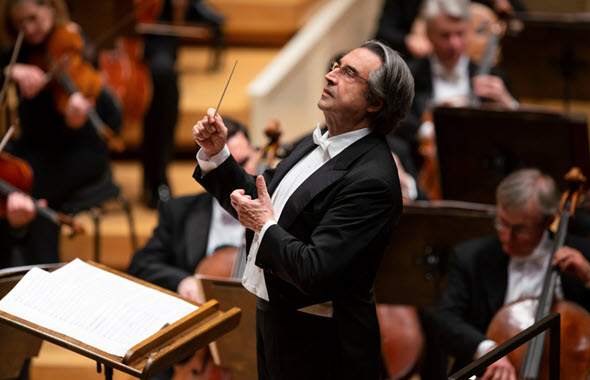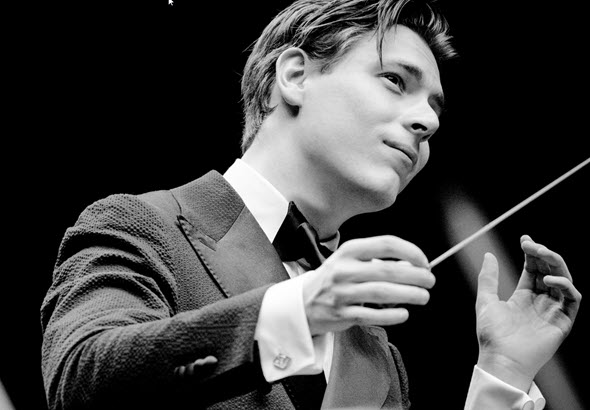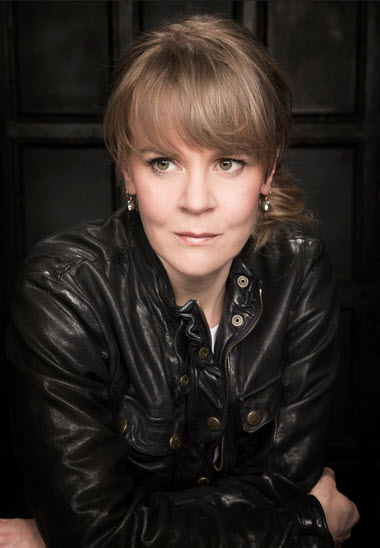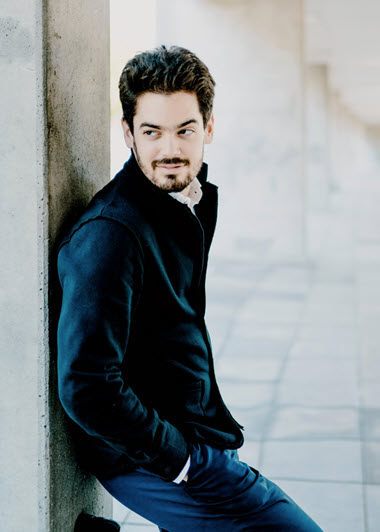Chicago Symphony to open Carnegie season
as Riccardo Muti era closes with long goodbye

Riccardo Muti will conduct the Chicago Symphony in Carnegie Hall’s season-opening concerts. (Todd Rosenberg photo)
Report: Muti will lead the CSO in two programs at Carnegie Hall in October. He’s back in Chicago several weeks over next two seasons.
By Lawrence B. Johnson
The Chicago Symphony Orchestra will take the spotlight for the opening of Carnegie Hall’s 2023–24 season, with Riccardo Muti leading “a celebratory gala concert” on Oct. 4, the venerable New York institution announced. Muti, who steps down in June after 13 years as CSO music director, will also lead a second program the next night at Carnegie.
The Carnegie opener features Tchaikovsky’s Violin Concerto with Leonidas Kavakos and Mussorgsky’s “Pictures at an Exhibition.” Muti and the CSO return the following evening with an Italian-themed program to include Mendelssohn’s Symphony No. 4 (“Italian”) and Richard Strauss’s tone poem “Aus Italien,” along with the New York premiere of Philip Glass’s “The Triumph of the Octagon,” inspired by the eight-sided shape of the 13th-century citadel Castel del Monte in Muti’s native Italy.
The Riccardo Muti era at the Chicago Symphony Orchestra is ending after the Italian maestro’s 13-year run as music director. But it won’t be an abrupt cutoff — more like a graceful diminuendo. Muti, so long The Man at Orchestra Hall, will be back for multiple weeks over the next two seasons while the CSO continues the search for its next music director.
As the Chicago Symphony announced plans for the 2023-24 season that include a stellar lineup of guest conductors, CSO president Jeff Alexander said Muti’s six-week engagement with the orchestra next year will be followed up by a similar stint in 2024-25. Muti’s first two weeks next fall will launch the orchestra on an indeterminate stretch without a music director. Muti, who turns 82 in July, also will lead a three-week European tour next season and add one further weekend of out-of-town concerts yet to be announced.

Esa-Pekka Salonen returns to conduct the CSO in Mahler’s Symphony No. 2 (“Resurrection”). (Todd Rosenberg photo)
In 2024-25, Muti’s weeks will be focused on concerts at Orchestra Hall, Alexander said, adding that he hopes a new music director can be named at some point over the next two years. But he emphasized that neither orchestra management nor the search committee sees any great urgency in the quest for Muti’s successor.
The impending directorless gap mirrors the four-year interval between the end of Daniel Barenboim’s directorship and Muti’s takeover in 2010. During those years, the Chicago Symphony was doubly guided and nurtured by the recurring presence of two great conductors, Pierre Boulez and Bernard Haitink. No such artistic support system will be in place this time.
“While it was extremely meaningful to have Haitink and Boulez with us during that period, we decided this time around not to try to replicate that,” Alexander said. “Maestro Muti has agreed to six more weeks with us in 2023-24, and we feel very good about supplementing that with a robust list of guest conductors beginning in the fall. While an important part of Muti’s time with us next season will involve touring, in 2024-25 he will have more of a presence in Chicago, so we know the orchestra’s artistic leadership will remain strong.”
Asked if the search committee — made up of CSO musicians, administrative staff and board members — might be looking to go with a younger star like the Finnish Klaus Mäkelä, who just turned 27; the Israeli Lahav Shani, 34; or the Czech Jakub Hrůša, 41, Alexander said: “No, we aren’t limiting ourselves in any way. We agreed at the first meeting that we would remain completely open and not focus on age or experience or sex or race. We want somebody who can bring wonderful artistic leadership to the podium, but also someone who will engage with our donors and sponsors and the community — someone who is great on and off the podium.”
Alexander acknowledged that the eyes of the music world are now on Chicago, which has a stellar legacy of modern music directors going back beyond Barenboim to Georg Solti and Fritz Reiner. And if anything, the heat only got turned up by the New York Philharmonic’s blockbuster appointment of 42-year-old Gustavo Dudamel, who will leave the Los Angeles Philharmonic to succeed Jaap van Zweden in the fall of 2024.
“This is such a great orchestra and city, and so the interest in the position is very high,” Alexander said. “We understand the seriousness of our responsibility. It’s a critical decision that an organization like the Chicago Symphony makes only once every 15 years or so. It will be a very thoughtful and thorough process. The stars have to align, but we hope that sometime in the next couple of seasons we would have an annoucement. We are all looking forward to that day.”
You can find details of the CSO’s new season, including the piano and chamber music series under the aegis of Symphony Center Presents, here.
Alexander said he was especially pleased with the lineup of guest conductors for next season. It’s a prospect that jumps off the page, by and large an all-star group. While 2023-24 is aglitter with soloists, as well, the spotlight will be on the podium. In a season of great promise, here are the concerts circled in red on my calendar.

Finnish conductor Klaus Mäkelä will return to the CSO with Shostakovich’s 10th Symphony. (Marco Borggreve photo)
Sept. 28-30: Muti leads the season’s first two subscription programs. The latter includes the world premiere of venerable 86-year-old composer Philip Glass’ “The Triumph of the Octagon,” a CSO commission, along with Mendelssohn’s “Italian” Symhony and Strauss’ “Aus Italien.”
Oct. 12-15: The eminent Dutch conductor Jaap van Zweden is on the podium, but this is one instance where the soloist alone should be worth the ticket price: Baritone Christian Gerhaher sings selections from Mahler’s early ‘Des Knaben Wunderhorn” (The Youth’s Magic Horn). I heard him in an all-Mahler recital in New York a few years ago. Not to be missed.
Dec. 21-23: Andrew Davis, music director emeritus at Lyric Opera of Chicago, brings his own orchestration of Handel’s “Messiah” with the CSO and Chorus and a first-rate group of vocal soloists. Rethinking Handel’s oratorio has a great tradition: Mozart also re-orchestrated “Messiah.”
March 1-5, 2024: Conductor Herbert Blomstedt turns 96 in July, and his concerts always bring a special mix of elegance, insight and, yes, energy. This time it’s Beethoven’s Seventh Symhony and the Schubert Sixth.
March 7-12, 2024: Next March shapes up as a season unto itself. Jakub Hrůša, who leads back-to-back programs, is music director designate of the Royal Opera, Covent Garden (effective 2025), chief conductor of the Bamberg Symphony and principal guest conductor of the Czech Philharmonic. This first program includes Strauss’ “Death and Transfiguration,” Mendelssohn’s Violin Concerto (with Gil Shaham) and Lutosławski’s Concerto for Orchestra.
March 14-16, 2024: Hrůša’s second program is just as well constructed and intriguing as the first: Strauss’ “Also sprach Zarathustra,” Bohuslav Martinů’s Violin Concerto (with Josef Špaček), and Bartók’s Suite from “The Miraculous Mandarin.”
March 21-23, 2024: The highly regarded Finnish conductor Susanna Mälkki returns to the CSO with a pairing of Mahler’s Fourth Symphony (with soprano Ying Fang as soloist for the final movement) and the world premiere of another CSO commission, Lowell Liebermann’s Flute Concerto No. 2 with orchestra principal Stefán Ragnar Höskuldsson.
April 4-6, 2024: Mäkelä, whose swift rise already has him designated as the next chief conductor of the Amsterdam Concertgebouw Orchestra, makes his third annual appearance with the CSO, and one can only assume that will prove to be a long string indeed. The brilliant Finn, who just dazzled the house with Mahler’s Fifth Symphony, comes back next season with the one-two punch of Shostakovich’s Tenth Symphony and Bartok’s formidable Second Piano Concerto, with the no less formidable Yuja Wang as soloist.
May 23-25, 2024: We’re in a stretch of deep red circles on my calendar. This week it’s Esa-Pekka Salonen, music director of the San Francisco Symphony and an old friend of the CSO, leading the orchestra and chorus in Mahler’s Symphony No. 2 (“Resurrection”). Enough said.
May 30-June 1, 2024: Manfred Honeck, the Austrian music director of the Pittsburgh Symphony whose frequent CSO appearances have been unfailing highlights, figures to extend that run with a program of Bruckner’s Seventh Symphony and the world premiere of CSO resident composer Jessie Montgomery’s Percussion Concerto with the orchestra’s all-world principal Cynthia Yeh.
June 20-23, 2024: The CSO commits its season finale to the baton of Lahav Shani, who made his splendid debut this season with a distinctive perspective on Rachmaninoff’s Symphonic Dances. Shani is chief conductor of the Rotterdam Philharmonic and music director of the Israel Philharmonic. He becomes chief conductor of the Munich Philharmonic in 2026. His CSO program for next season balances Tchaikovsky’s Symphony No. 6 in B minor (“Pathétique”) with the Piano Concerto by former CSO resident composer Mason Bates. The soloist is the brilliant Russian-born virtuoso Daniil Trifonov.
Also to be noted are concerts by two visiting orchestras led by a pair of distinguished conductors. Daniel Barenboim, the Chicago Symphony’s music director from 1991-2006 and now 80 years old, will preside over an all-Brahms program with the Staatskapelle Berlin on Nov. 28. And Simon Rattle, former longtime chief conductor of the Berlin Philharmonic, brings his Bavarian Radio Symphony Orchestra to Chicago for a performance of Mahler’s Symphony No. 6 on April 28, 2024.




